The main indicators for assessing urination are frequency and nature. Their change helps to diagnose diseases of the urinary system and track changes in its work. The number of urination in a healthy person is 4-7 times a day. Frequent urination in women without pain or with pain may be due to the development of the disease or physiological changes in the state of the body.
But sometimes, frequent and profuse urination in women is not at all a harbinger of emerging problems.
Causes of increased urination in women
Very frequent urination in women can be observed for several reasons:
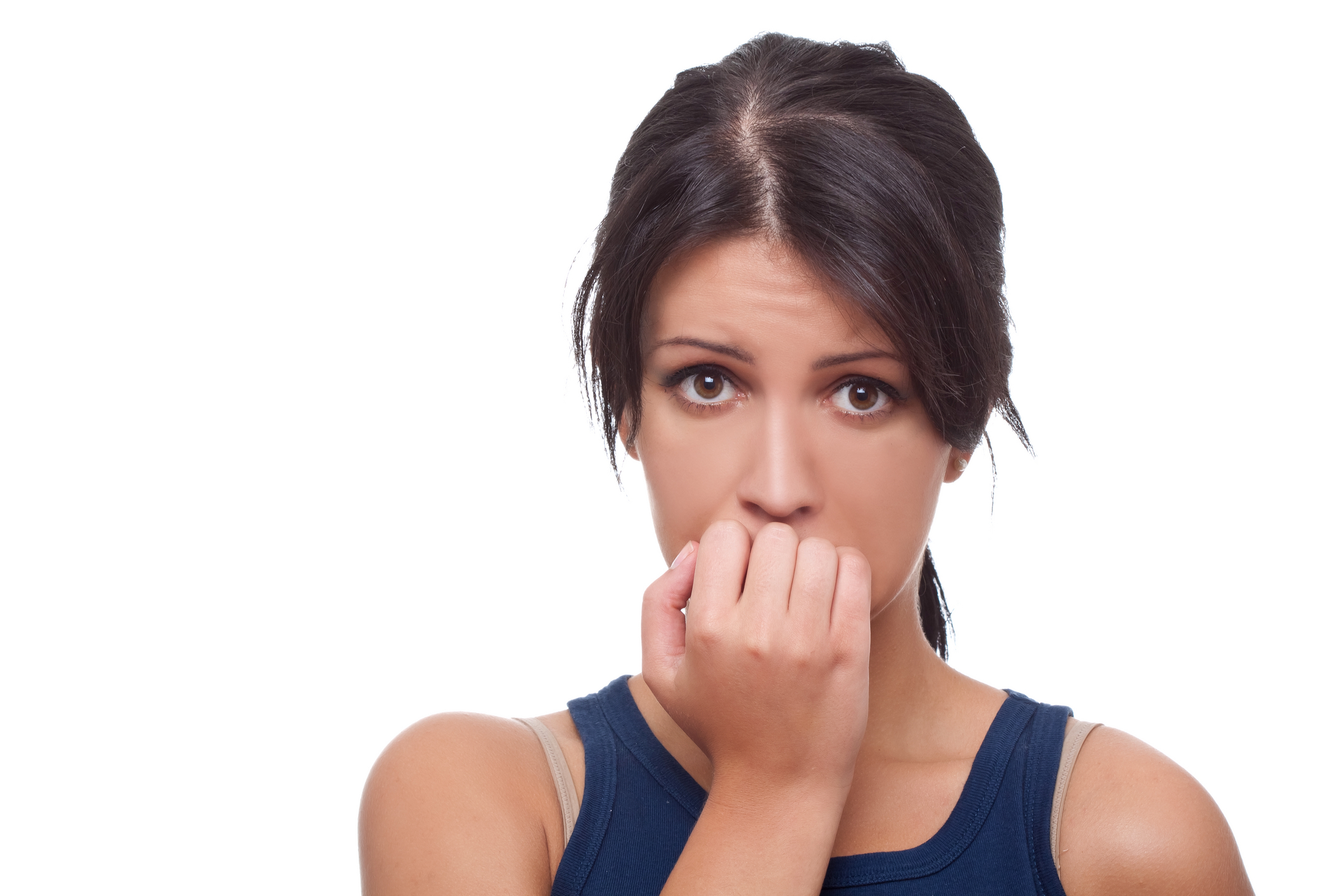
Physiological reasons why there may be frequent urination in women:
- period of pregnancy;
- premenstrual period (a few days before the onset of menstruation);
- menopause.
During pregnancy, the fetus is constantly growing and the uterus increases its size, squeezing the bladder, which leads to a decrease in its capacity (loss of functional volume, while preserving the anatomical volume). That's why frequent urges to urination in women intensify. The period of menstruation and menopause is characterized by fluid retention in the body under the influence of hormonal changes. With the normalization of hormone levels, excess fluid is excreted by the kidneys.
An increase in the frequency of urination can be triggered by being in a cold room for a long time or by consuming a large number liquid (exceeding the usual average daily volume).
 Differential Diagnosis
Differential Diagnosis
Associated symptoms help to determine the underlying cause of frequent urination and make the correct diagnosis.
The causes and treatment of frequent urination in a woman are within the competence of the urologist and gynecologist.
Diabetes and urination
 The basis of the disease is the production of insufficient insulin by the pancreas, or a decrease in the sensitivity of cell receptors to it. Frequent urination or frequent urge to urinate in diabetes is also accompanied by:
The basis of the disease is the production of insufficient insulin by the pancreas, or a decrease in the sensitivity of cell receptors to it. Frequent urination or frequent urge to urinate in diabetes is also accompanied by:
- increased need for fluid (thirst);
- polyneuropathy (numbness of the legs);
- a change in the weight of a woman (weight loss - type 1, obesity - type 2 diabetes);
- blurred vision (diabetic retinopathy);
- irritation in the genital area (itching).
Diabetes insipidus is characterized by intense thirst and a large volume of light-colored urine.
Attention: if similar symptoms occur, you should immediately contact an endocrinologist. Taking replacement therapy drugs will not allow many complications to develop.
 The period of menopause during physiological development proceeds with a temporary increase in urination. But sometimes menopause occurs with a strong imbalance of hormonal levels. Therefore, if an increase in the frequency of urination is combined with menstrual disorders, sensations of heat, changes in body weight and emotional instability for several days, then this is the development of a climacteric syndrome.
The period of menopause during physiological development proceeds with a temporary increase in urination. But sometimes menopause occurs with a strong imbalance of hormonal levels. Therefore, if an increase in the frequency of urination is combined with menstrual disorders, sensations of heat, changes in body weight and emotional instability for several days, then this is the development of a climacteric syndrome.
Diseases of the urinary and reproductive systems
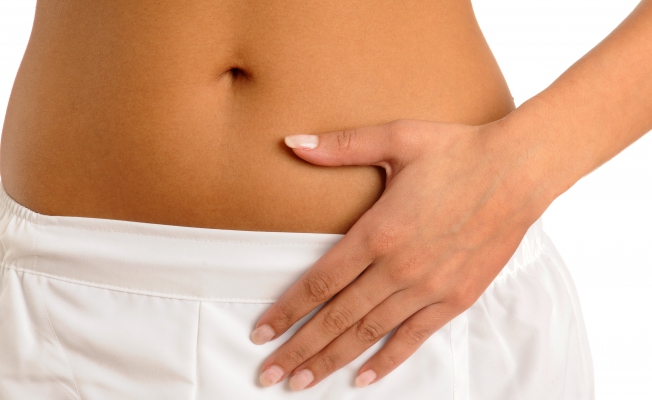 Inflammatory processes in the bladder, kidneys and urethra are accompanied by unpleasant sensations during the act. You may also experience pain in the lumbar spine and abdomen, headache and chills. Urine may change color to reddish or "meaty slops" with glomerulonephritis, contain an admixture of pus, giving it turbidity and bad smell. Arterial pressure tends to increase with this pathology and there are swelling on the face in the morning.
Inflammatory processes in the bladder, kidneys and urethra are accompanied by unpleasant sensations during the act. You may also experience pain in the lumbar spine and abdomen, headache and chills. Urine may change color to reddish or "meaty slops" with glomerulonephritis, contain an admixture of pus, giving it turbidity and bad smell. Arterial pressure tends to increase with this pathology and there are swelling on the face in the morning.
Frequent nighttime urination that exceeds daytime urination is called nocturia. This symptom accompanies glomerulonephritis and CRF. Urolithiasis during an exacerbation (a stone blocks the urethra or ureters) signals a problem with the release of urine in small portions mixed with blood. In this case, urologists are involved in the causes and treatment.
Diseases of the reproductive system stimulate frequent urge to urinate. This is due to reflex irritation of the urinary tract located nearby.
Inflammatory diseases of the ovaries and fallopian tubes are accompanied by unilateral pain in the lower abdomen. Quite often, cystitis, urethritis and adnexitis have specific pathogens - chlamydia, ureaplasma, etc.
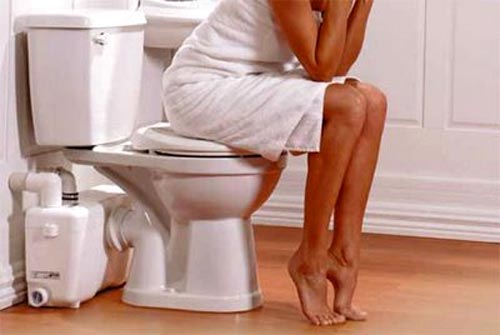 Chronic cardiovascular insufficiency
Chronic cardiovascular insufficiency
Chronic cardiovascular insufficiency is dangerous due to the formation of blood stagnation in the circulatory system. This is accompanied by frequent nighttime urination. And due to the fact that in a horizontal position, the blood supply to the kidneys and the production of urine increase. CHF is characterized by swelling of the legs in the evening, shortness of breath and cough.
Urination at night
When it comes to nighttime frequent urination, it is assumed that in daytime“this” happens many times less than during sleep hours. Frequent urination at night is inherent in pregnancy. In the supine position, the uterus exerts pressure with greater force and, therefore, you want to go to the toilet more. However, in some cases, even during gestation, too many visits to the ladies' room may be due to the presence of a disease, because it is during these months that the vulnerability of the female body increases especially in the genitourinary system.
With pain 
Frequent urge to urinate or urination itself with pain - clear sign acute pyelonephritis. It also indicates the presence of an inflammatory, infectious or suppurative process inside the organs of the genitourinary system. If it has reached this stage, then delaying a visit to the doctor is very dangerous.
Urination without pain
The most natural explanations for frequent urination without pain or only the urge to urinate include pregnancy, hormonal imbalance and old age. But it can also serve as an existing diabetes mellitus or other developing disease. If you started drinking more fluids or taking diuretics, then this is an adequate response to get rid of excess water in the body.
Regardless of whether you have identified the reasons why the urge to urinate occurs or not, it is better to deal with this together with your doctor.
 The choice of method on how to treat frequent urination in women depends on the cause that caused the increase. Therefore, therapy differs according to the underlying disease. In the presence of a focus of infection in the pelvis, antibiotics and detoxification agents are used. Hormonal failure is corrected with the help of hormone replacement therapy. CHF requires cardiac medications.
The choice of method on how to treat frequent urination in women depends on the cause that caused the increase. Therefore, therapy differs according to the underlying disease. In the presence of a focus of infection in the pelvis, antibiotics and detoxification agents are used. Hormonal failure is corrected with the help of hormone replacement therapy. CHF requires cardiac medications.
Whatever the causes and treatment of frequent urination, it is necessary to seek medical help in time.
Folk remedies
Birch buds collected in spring will save you from unpleasant and annoyingly frequent  urination. Taking one teaspoon of the kidneys, pouring a glass of boiling water and insisting for a couple of hours, this decoction is taken three times a day, 125 milliliters each.
urination. Taking one teaspoon of the kidneys, pouring a glass of boiling water and insisting for a couple of hours, this decoction is taken three times a day, 125 milliliters each.
Mint is not only a sedative, but also an assistant with frequent urges. Brew it and drink several glasses throughout the day.
Treatment in women folk remedies impossible to imagine without parsley. A bunch of fragrant greens, along with carrot tops, are finely chopped and brewed with boiling water. The required ratio is 1 tablespoon per half liter. Leave the infusion for a couple of hours to take 4 times a day before the main meals. After one week, you will feel the problem less often.
Surgical treatment of urinary incontinence in women
The urge to urinate under normal conditions in men and women develops strictly when the bladder is full. No specialist can say how often they should appear, because the individual characteristics of each organism set their own rhythm for the execution of internal processes. Someone goes to the toilet only 5 times a day, others need about ten visits. Of course, you should also take into account the amount of liquid you drink, but if you have it unchanged, and the frequency of urges increases and reaches 15 times already, then most likely some kind of pathological disorder has occurred.
If you notice a similar sign in yourself, then you should immediately evaluate the quality characteristics of urine. You need to pay attention to its color (normal color ranges from straw to brown) and smell (in healthy people it is not pronounced and not sharp). Track what sensations are accompanied by urination, whether you experience any discomfort, pain or other non-specific phenomena. Be sure to mention each of them.
In the medical reference book, frequent urination is given a special term - pollakiuria. But it is worth considering that it can be the result of physiological characteristics, or still a symptom of a violation.
The first ones include:

The mechanism for the development of frequent urge to urinate in women and men lies in the irritation of the bladder or urethra, often caused by inflammation or infection.
A huge number of receptors are concentrated on the neck of the bladder. They are needed in order to respond to the stretching of the muscle fibers of the organ, and transmit information to the brain that it is time to empty it. If there is any negative effect on these "sensors", then they will send false and excessively frequent data, which in the cerebral cortex will be taken as a signal of an overfilled bladder, which will cause the person to have an irresistible desire to urinate. This adversely affects the patient's well-being, but what is the reason for this deviation, you will learn further.
If frequent calls
Everyone can find out what frequent urination is, even in childhood.
This phenomenon occurs equally often in both sexes. There are even common pathological causes, which we will talk about now.
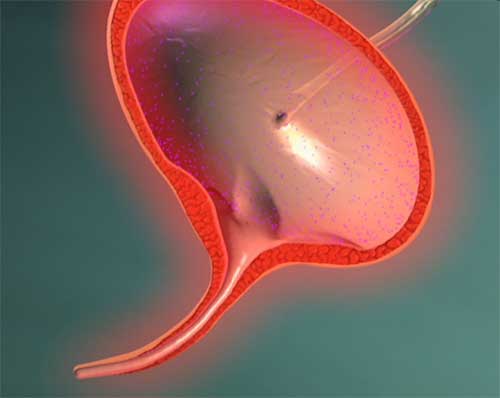
Speaking about the specific causes of frequent urination, relating only to women, gynecological diseases can be distinguished, such as:
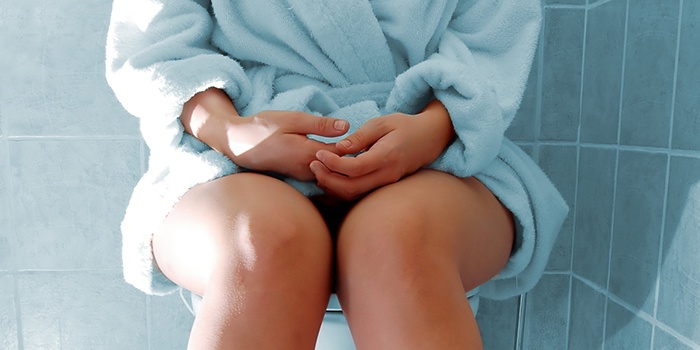
In men, the urge to urinate can be affected by problems with the prostate gland, such as its inflammation - prostatitis, tissue growth - adenoma, or tumor formation. Since the prostate surrounds the urethral canal, an increase in its size can narrow the lumen of the urethra, thereby disrupting the outflow of urine.
Urge to urinate without passing urine
False urges to urinate are a sign of a violation, since normally, when they appear, the bladder should be completely emptied. It is appropriate to talk about them in those cases when, when going to the toilet, there is no urine at all, or there is very little of it.
Often you need to look for the cause in an obstacle or an irritant.
Violate the normal patency of urine can again:

Irritation of the bladder mucosa occurs when drinking alcohol, caffeinated drinks (tea and coffee), and certain types of sweeteners.
Experiencing emotional stress or anxiety, a violation can occur inside the body, because of which false urges should not be surprised.
It is quite possible that such a disorder can also occur in infectious diseases. Cystitis, prostatitis, colliculitis and vesiculitis are examples of this. Most likely when urinating and after it will burn. With such a list of symptoms, you should immediately consult a doctor.
Regular urge to go to the toilet in a small way negatively affects not only the general well-being, but leaves an imprint on the psycho-emotional state.
Frequent urination in women at night
Nocturia or frequent urination in women at night is a common cause of sleep disturbances and a signal of problems in the functioning of any organs and systems. Every day, the kidneys secrete about 2.5 liters of fluid, while nocturnal diuresis accounts for about 1/3 of this volume. If the work of the urinary system changes, then nocturnal diuresis accounts for about 2/3 of the daily amount of water. The causes of this condition can be both physiological and associated with pathological processes in the body.
Physiological factors of nictruria:
- Pregnancy - in the last stages of bearing a child, an enlarged uterus begins to put pressure on the bladder, which causes a decrease in the volume of urine that fits in it.
- The premenstrual period is characterized by fluid retention in the body due to hormonal changes. After menstruation, the condition returns to normal.
- Climax - this process is accompanied by a decrease in the elasticity of tissues, including the muscular frame of the bladder. This causes destabilization of his work. The body cannot hold a large amount of fluid, provoking nighttime urge to go to the toilet.
In addition to the above factors, nocturnal pollakiuria is inevitable with heavy drinking before bedtime or the use of diuretic drinks.
Pathological causes of nocturia in women:
- Infectious lesions of the urinary tract. Pathological processes in the urethra, ureters and bladder cause irritation of the mucous membrane of these organs, which leads to the urge to urinate.
- Diabetes mellitus - this endocrine disease is caused by poor functioning of the pancreas, which synthesizes insulin. Because of this, the patient drinks a lot of fluids, causing dysuria. Urine is excreted in large volumes both during the day and at night. Against this background, there is increased dryness of the mucous membranes and, of course, strong thirst.
- Diseases of the genitourinary system - it can be cystitis, urethritis, pyelonephritis, nephrosclerosis, cystopyelitis and other pathologies.
- Chronic heart failure - in this case, nocturia in women is associated with blood stasis and malfunction of the genitourinary system.
When determining the causes of the disorder, a comprehensive individual approach is required. This is due to the fact that there is no clearly established norm for urination at night. Particular attention is paid to the presence of concomitant symptoms and the general condition of the patient.
Frequent urination in women during the day
The problem of pollakiuria is familiar to many people firsthand. Frequent urination in women during the day can be associated with both natural processes in the body and various disorders. An increased desire to go a little is considered quite normal during pregnancy and in old age, before menstruation or with changes in hormonal levels.
An unpleasant condition may indicate the development of diabetes or diabetes insipidus. In the first case, the disease is associated with a violation of carbohydrate metabolism in the body, which is manifested by a complex of various symptoms. In the second case, the patient suffers from intense thirst, so going to the toilet is explained by drinking plenty of water. The problem occurs with kidney disease and heart failure, as well as with prolapse of the uterus and many gynecological diseases.
Dysuric syndrome can occur with additional symptoms that indicate problems such as:
- Pyelonephritis - in urine there are impurities of pus and blood, back pain, chills, fever body, general weakness.
- Urolithiasis disease - pain above the pubis, interrupting the process of urination until the organ is emptied, incontinence during physical exertion, coughing, laughing.
- Cystitis - burning and pain in the urethra, a feeling of not completely emptying the bladder.
- Sexual infections - vaginal discharge of a different nature, swelling and redness of the external genital organs, an increase in inguinal lymph nodes.
- Urethritis - burning, pain and itching in the urethra, mucous discharge from the urethra.
- Uterine fibroids - violation of the menstrual cycle, pain in the lower abdomen, uterine bleeding.
If the endless urge to the toilet causes anxiety and painful symptoms, then you should immediately seek medical help. The doctor diagnoses the pathological condition and prescribes its treatment.
Frequent urination in the morning in women
Important indicators of health are the frequency and nature of bladder emptying. Their changes allow drawing conclusions about the state of the urinary system and identifying various diseases. Normally, a person urinates about 7-10 times a day. Exceeding this amount should cause concern.
Frequent urination in the morning in women may be due to completely harmless factors. For example, if a lot of liquid was drunk before going to bed, a watermelon or other diuretic products were eaten. This is observed in pregnant women, with various hormonal changes in the body and with the use of dysuric drugs before bedtime.
If dysfunction occurs with additional symptoms, then this may indicate diseases such as cystitis, urethritis, overactive bladder, adnexitis, pathologies of the cardiovascular system, and much more. Treatment of a painful condition depends entirely on its cause. So, infectious and inflammatory pathologies are treated with antibiotics, and in case of hormonal disorders, replacement therapy is indicated.
Itching and frequent urination in women
Itching and frequent urination in women occurs with many inflammatory and infectious pathologies. Consider the possible causes of the disorder.
- Fungal infections - most often women experience candidiasis. Infection occurs when the microflora of the vagina is disturbed due to antibiotics, tight synthetic underwear, irritating sanitary pads, or regular change of sexual partners.
- Sexually transmitted diseases - this can be a herpes infection or gardnerellosis. Both pathologies cause vaginal dysbacteriosis, itching and regular urge to urinate.
- Vulvovaginitis is an inflammatory lesion of the genital organs by gonococci or Trichomonas.
If itching occurs immediately after emptying the bladder, then this may indicate such pathologies:
- Cystitis - is diagnosed in more than 25% of women, in 10% of cases it occurs in a chronic form.
- Urolithiasis - stones and sand irritate the mucous membrane of the urinary canal. Because of this, there is a burning sensation, pain, blood discharge.
- Urethritis is an inflammatory lesion of the urinary canal that provokes itching, burning, pain.
A painful condition can be triggered by pathologies of internal organs, hypothermia of the body and various injuries. There are also non-infectious causes of the disorder: psycho-emotional experiences, non-compliance with the rules intimate hygiene or allergic to cosmetical tools, pinworm infection, diabetes mellitus. The final diagnosis is made by the doctor after a gynecological examination, smears and tests.
Frequent urination in women after sex
For many people, sex is a source of emotional release and pleasure, but in some cases it can lead to unpleasant and even painful consequences. Many people ignore the discomfort after intercourse, considering this condition is not dangerous. At the same time, one of the symptoms of the pathological process in the body is frequent urination in women after sex. Its appearance indicates a violation of the normal functioning of the urinary system.
Consider the main causes of the disorder:
- Postcoital cystitis is an inflammatory process that is quite common among women who are actively sexual life. Symptoms occur shortly after sex. The disease state is associated with the introduction of harmful microorganisms from the male urethra into the female urethra and bladder.
- Aggressive sexual intercourse, in which the mucous membranes of the external genital organs and the urethra are injured. In this case, microtraumas open the way for the penetration of pathogenic agents and the development of inflammatory reactions.
- Non-compliance with intimate hygiene is a high risk of developing various infectious pathologies of both the bladder and the vagina, the adnexa of the uterus.
- Violation of the normal microflora of the vagina - bacterial vaginosis is accompanied by dysuric disorders and other painful symptoms.
- Weakened immune system - a violation of the protective properties allows bacteria and viruses to enter the body, causing various diseases and inflammatory reactions.
- Metabolic disorders - diabetes mellitus, thyroid disease, obesity and more.
- Hormonal disorders - in violation of the secretion of female sex hormones, there are problems with the reproductive system and many inflammatory pathologies.
Pollakiuria can occur not only after vaginal, but also after oral or anal sex. With oral caresses, there is a risk of transmission of the pathogen from the mucous membranes of the oral cavity to the genitourinary organs and vice versa. Against this background, inflammation of the gums and tonsils can develop. As a rule, patients with immunodeficiency states face this problem. Anal intercourse can cause the development of not only cystitis, but also pyelonephritis.
To prevent a painful condition, preventive methods should be observed: maintain intimate hygiene, increase the protective properties of the immune system, use barrier contraceptives (condom) when having sex with an unfamiliar partner or developing inflammation of the genital organs in a permanent one, and also regularly undergo preventive examinations by a gynecologist.
Itching, burning and frequent urination in women
The anatomical structure of the female reproductive system contributes to the appearance of inflammatory reactions in the urethra and bladder. Such a symptom complex as itching, burning and frequent urination in women occurs for the following reasons:
- Infectious factors (inflammation of the bladder, urethra, external and internal genital organs).
- Cystitis.
- Urethritis.
- Urolithiasis disease.
- Urogenital chlamydia.
- Gonorrhea.
- Candidiasis.
- Ureoplasmosis.
- Trichomoniasis.
- herpetic infections.
- Bacterial vaginosis.
- Atrophic vulvovaginitis.
- Non-infectious factors (mechanical, chemical irritation).
- Failure to observe intimate hygiene or its improper conduct.
- The use of cosmetic preparations that change the normal level of acidity and inhibit the healthy microflora of the vagina.
- Hypersensitivity to chemical contraceptives.
- Use of tampons or pads in violation of hygiene.
- Urethral injury ( urolithiasis disease, improper insertion of the catheter, rough sexual intercourse).
- Worm infestations.
- Abuse of bladder irritating foods or drugs.
In addition to the above reasons, itching and burning in combination with pollakiuria may indicate a condition during pregnancy, before / after menstruation, or endocrine disorders.
To determine the cause of the disease state, it is necessary to undergo a gynecological examination and pass a series of laboratory tests. According to the results of the diagnosis, the doctor makes the most optimal treatment plan.
Diarrhea and frequent urination in women
As a rule, diarrhea and frequent urination in women are not signs of any pathologies, of course, provided that there are no additional symptoms. This may be a normal reaction of the body to certain violations of its functioning.
If the combination of diarrhea and polyuria makes itself felt over a long period of time, then this may indicate pathologies such as:
- Diseases of the cardiovascular system (heart failure, heart attack).
- Endocrine diseases (diabetes mellitus, diabetes).
- Stones in the urinary tract or kidneys.
- Liver or kidney failure.
- Cystitis.
- Viral or bacterial infections.
- Weakened pelvic floor muscles.
- overactive bladder
- Various injuries.
As for the physiological causes of diarrhea and diuresis, it can be:
- Pregnancy.
- Condition before or after menstruation.
- Food or drug poisoning.
Particular attention should be paid to urinary tract infections (UTIs), as they are the typical cause of bladder dysfunction and diarrhea. The mechanism of the development of a disease state is associated with the entry of bacteria into the organ through the urethra. According to medical statistics, about 50-60% of women have experienced a UTI at least once in their lives.
There are certain risk factors for this pathology: irritation and inflammation of the vagina, changes in the structure of the urinary system during pregnancy, various chronic diseases, improper wiping after the toilet, sexual trauma, hydration and retention of urine for a long time.
To diagnose the cause of an unpleasant condition and eliminate it, you should seek medical help. After a complex of various examinations, the doctor will prescribe the correct and effective treatment.
Constipation and frequent urination in women
There are many causes of problems such as constipation and frequent urination. Women are most often diagnosed with disorders such as:
- Diabetes mellitus (1 and 2 types).
- Urinary tract infections.
- Stones in the bladder.
- Overactive bladder.
- Infectious lesions of the kidneys.
- Interstitial cystitis
- Diseases of the thyroid gland.
- Use of laxatives and diuretics.
- Stress and emotional experiences.
- Deficiency of fiber in the diet.
- Diseases of the gastrointestinal tract.
- Eating Disorders.
- Haemorrhoids.
- Some medications.
Similar symptoms occur during pregnancy. Hormonal changes in the body cause dysuric syndrome and difficulty with bowel movements. Another one possible reason disorder is urinary dysfunction. Most often it is diagnosed in childhood. The problem arises from damage to the muscles that control the bladder and bowel movements. Various neurological diseases can cause damage to the nerve fibers that feed the bladder and are responsible for bowel function.
If regular urination and constipation persist for a long period of time, then this is a reason to immediately seek medical help. Without timely treatment, there is a risk of developing an acute inflammatory reaction and intoxication of the body with feces.
Nausea and frequent urination in women
According to medical statistics, every day a woman visits the toilet from 3 to 6 times, while the number of trips in a small way depends entirely on the amount of fluid drunk, metabolic rate and a number of other physiological factors. Symptoms such as nausea and frequent urination in women are most often associated with such causes:
- Pregnancy.
- Condition before menstruation.
- Menopause.
- body intoxication.
- Abuse of caffeine or alcoholic beverages.
- Overeating foods with diuretic properties (cucumbers, cranberries, lingonberries, watermelon).
- Nervous experiences.
- Hypothermia of the body.
- Diseases of the cardiovascular system.
- Pathologies from the gastrointestinal tract.
- Urinary system disorders.
- endocrine disorders.
All of the above factors require careful diagnosis and differentiation. If this condition is left without medical attention, this can lead to its progression and aggravation of painful symptoms.
Bloating and frequent urination in women
Many people are faced with such a problem as flatulence and pollakiuria. Several factors are thought to be the cause of this condition. Bloating and frequent urination in women in most cases is associated with pathological changes in the genitourinary system.
Causes of the disorder:
- Drinking large amounts of fluids, especially carbonated drinks, coffee, or alcohol.
- Pregnancy - during growth, the fetus begins to put pressure on the urinary organs, causing unpleasant symptoms.
- If flatulence and the urge to go to the toilet are accompanied by pain, cutting or burning, then this indicates a progressive inflammatory process.
- Hemorrhoids - symptoms occur due to high blood pressure on the cavernous vessels.
- Oncological diseases.
To establish the root cause of the disease state, complex diagnostics are shown. It consists of ultrasound, various laboratory tests and smears, sigmoidoscopy and colonoscopy. According to the results of the examinations, the patient is prescribed a treatment regimen.
Frequent urination due to nerves in women
A periodically diagnosed pathology in both children and adults is bladder neurosis or frequent urination due to nerves. In women, this condition is associated with disturbances in the work of the sympathetic and parasympathetic divisions of the nervous system. The first section retains urine by contracting the sphincter, and the second is responsible for relaxing the walls of the bladder and the sphincter to remove fluid. Various stresses and nervous experiences lead to the excitability of each of the departments, which is why the dysuric syndrome occurs.
The disorder is associated with such factors:
- Increased muscle tension. When stressed, the muscles are in an overstrained state, putting pressure on the bladder. This causes the urge to go to the toilet.
- obsessive thoughts and ideas. Neurological disorders force you to concentrate on your physical sensations. Most often it is the desire to urinate.
The painful condition may be associated with nerve damage in the urinary departments, that is, the neurogenic bladder. In this case, in addition to stress, pollakiuria provokes Parkinson's disease, systemic atrophy, multiple sclerosis, brain tumors, stroke or herpes zoster, which affects the nerve endings in the sacral region.
Neurosis is characterized by the following symptoms:
- Paruresis (psychogenic factor) is the difficulty or inability to go to the toilet with strangers, even with a strong desire.
- Patients do not feel their bladder. Because of this, trips to the toilet become regular. This symptom can be supplemented by pain in the lumbar region and perineum.
Neurotic disorders are difficult to diagnose, but they are easily treatable. As a rule, various anti-stress drugs or tranquilizers, physiotherapy and a therapeutic diet are prescribed to eliminate them.
Frequent false urge to urinate in women
As a rule, frequent false urge to urinate in women indicates the development of an inflammatory process. But do not forget that the urinary system is multilevel, that is, it is not only the bladder and neurons, but also many other organs. Based on this, pollakiuria can occur at any of its levels due to the influence of certain pathological factors.
Consider the main causes of false pollakiuria:
- Inflammatory diseases.
- Hypothermia of the body.
- Gynecological pathologies.
- Immune system disorders.
- Menopause.
- Pregnancy
- Premenstrual syndrome.
- Unbalanced nutrition.
- Urolithiasis disease.
- Venereal infectious diseases.
In addition to the above factors, the disorder may occur due to disturbances in the functioning of the nervous system, with diseases of the central nervous system, constipation, uterine myoma, iron deficiency anemia.
There are more harmless reasons: the abuse of coffee, tea, carbonated drinks, alcohol, spicy foods, sweets. In any case, if the discomfort persists for several days and interferes with normal life, then medical attention should be sought.
- polyuria - an excessive amount of fluid begins to accumulate in the bladder;
- disease - causes dysfunction in the urination system;

1 Types of disease
An average-sized bladder can hold 1.5-2 liters of fluid. During the day, the average person goes to the toilet 4 to 6 times if he consumes no more than 1.5 liters of liquid. Frequent urination in medicine is divided into subcategories:
Frequent urination accompanies many diseases, and not much urine comes out when emptying. In such a situation, the patient begins to go to the toilet up to 15-20 times a day, but there is no feeling of relief.
Frequent urination during the day may be due to the presence of bladder stones. In such a situation, the patient will feel calm at night, and he will not need to go to the toilet at night.
But frequent urination at night may indicate neoplasms such as adenoma and prostate cancer. If a person constantly experiences urges during the day, but cannot go to the toilet at night, then this is a clear sign of neurosis.
Do not forget about chronic diseases that are accompanied by such a symptom. If there are no health complaints, then it is worth remembering which medications taken recently, because it is quite possible that they have a diuretic effect.

There is one condition in women that provokes frequent urination - pregnancy. Especially often this problem occurs in the last trimester, as the baby begins to actively gain weight, which is why everything internal organs squeezed to make room for it. In addition to the fact that a pregnant woman goes to the toilet a lot, she can still feel pain in her lower back. If discomfort occurs frequently and has a high intensity, then expectant mother you should consult your doctor about this. In this period female body more prone to various infections. Therefore, if a woman is sincerely worried about the health of her baby, she is obliged to keep her gynecologist up to date.
2 Etiology of the disease
The causes of frequent urination can be closely related to the onset of the development of a disease, which, by the way, is often true. But each ailment has its own beginning and the symptoms that accompany it.
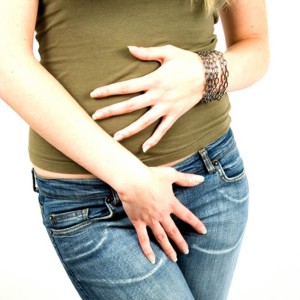
So, frequent urination can be caused by the following diseases:
- BPH. This is a male disease, which is accompanied by frequent urination. This situation develops against the background of an enlarged prostate, which is located in the region of the periurethral glands. Already in the initial stages of growth, the prostate gradually begins to squeeze the urethra, which causes a violation of the urinary function. Usually prostate adenoma occurs after 40 years. To diagnose the disease, the patient needs to undergo a transrectal ultrasound examination, which allows you to see the prostate and evaluate its size.
- Cystocele. This is a female disease that is characterized by the descent of the bladder. In this case, there is pressure on the pubic sphincter, which, in turn, begins to bulge into the vagina. Frequent urination is accompanied by urinary incontinence when coughing or sneezing. This disease can be detected by a gynecologist during a preventive examination.
- Prostatitis. One of the most common causes among the male population that provokes frequent urination. Such a disease is accompanied by an inflammatory process on the back or prostatic region of the urethra or on the neck of the bladder. In addition to the fact that the patient may have an uncontrollable urge to go to the toilet, in addition to this, small amounts of urine may also be observed. A man with prostatitis not only has a need to constantly visit the toilet, but the process itself will be accompanied by pain. To determine the disease, a palpation rectal examination is performed, it is also necessary to pass urine for tests and undergo an ultrasound examination of the prostate gland.
- Radiation cystitis. Such a problem can occur in a woman when she is (or has been) undergoing radiation therapy for neoplasms associated with the genitourinary system. Frequent urge to urinate appears against the background of damaged epithelial cells that line the mucous surfaces of the bladder. Thus, the bladder neck is in a state of constant irritation.
- Reactive arthritis. Such diseases are associated with the musculoskeletal system. For their development, the appearance in the body of an infection that is sexually transmitted is enough. A striking example of such an infection is chlamydia and mycoplasmosis. With the active activity of such microorganisms, damage to the knee, ankle and metacarpophalangeal joints begins, and as a primary symptom, urethritis. In addition to frequent urination, the patient may experience conjunctivitis, ulcers in the oral cavity and on the genitals.
- Spinal cord injury. If for some reason a person has injured the spine, especially the part that is lower, then there is a high risk of hooking the genitourinary system. In such a situation, pain may occur in the lower back or other place where the blow fell.
3 Common cases of pathology
- Urethral stricture. This condition is a narrowing of the urethral canal, which may be congenital or acquired. In such a situation, the patient will not only experience frequent urge to go to the toilet, but the process itself will require some effort. The jet loses its pressure.
- Urinary incontinence. This is also a separate disease, when the patient, during sneezing or coughing, feels that he has a little fluid coming out of the genitals. This ailment occurs in individuals who have problems with the coordination of the muscular system of the pelvic diaphragm. Although this problem may have a neurological background.
- Stones. Due to the presence of foreign bodies in the urinary system, especially in the ways, the neck of the bladder will be constantly irritated. It happens that the stones are inhibited in the posterior region of the urethra, because of which the patient experiences a very frequent desire to go to the toilet, and with the progression of the disease, the intensity will increase. Treatment of frequent urination should be carried out urgently, as soon as pain in the lower back begins to appear or bloody inclusions appear in the urine.
- Infection. Infectious diseases always lead to inflammation of the urethra. A striking example of such an ailment is cystitis. In addition to the fact that such a patient has frequent urination, the process becomes very painful, while the liquid can change its color and smell unpleasant. It's important to give everything necessary tests to specify the problem, since the method of treatment depends on this.
- Iron deficiency anemia. In such a situation, the mucous surfaces lose their strength, which makes them easy to injure.

Frequent urination can occur for absolutely different reasons. That is why it is so important to diagnose and understand exactly what the problem is in order to correctly prescribe the treatment for frequent urination.
4 Manifestation of symptoms in children
Children, like adults, can get sick. But if the child has frequent urination, then first of all it is worth focusing on his age. As the child's body grows, the bladder increases in size. How many times a day the baby will ask to go to the toilet can directly depend on the amount of liquid drunk, as well as on the diet. For example, in the first 2-3 months, a child can empty the bladder from 20 to 25 times a day, and this is the norm.
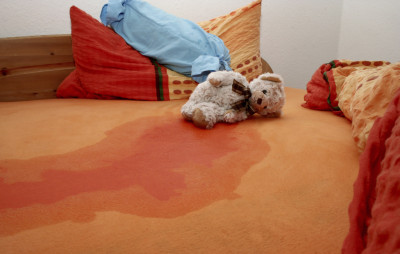
In children, frequent urination may be due to the following factors:
- how much liquid they drink per day;
- the likelihood of taking diuretic drugs that help remove fluid from the body;
- is there any place infection- nephritis, urethritis, cystitis;
- whether the child is currently ill with a respiratory viral infection;
- Frequent urination can be a consequence of the development of diabetes.
It often happens that the child's frequent need to empty the bladder is associated with stress. Therefore, if parents notice that their baby has become more likely to run to the toilet than before, it is worth considering what reasons could cause such a condition.
As for children's treatment, then you should be very careful. The fact is that some diseases require urgent hospitalization of the crumbs and constant monitoring by professionals. For example, if there is a bacterial infection, then treatment will be with antibiotics. But these drugs are quite heavy for the child's body, and in particular the stomach. Therefore, the doctor will additionally prescribe to take live bacteria, which will help maintain the natural balance of microorganisms, which will avoid dysbacteriosis.
5 Traditional medicine recipes
If a baby has been diagnosed with cystitis, then it is recommended to add decoctions of bear ears and bearberry to medical preparations. But the dosage of drinking, as well as drugs, should be prescribed by the attending physician. In no case should you treat frequent urination by restricting drinking. On the contrary, it is better to make cranberry and lingonberry juices and give them to the child as much as possible. To control the children's body, the diet is adjusted for the baby, for which salt and spicy foods are excluded from all dishes. Smoked meats and spices are also included in the category of the ban.
To alleviate your condition, you can take a bath with a decoction of chamomile at home. This plant has an anti-inflammatory effect. But in any case, only home remedies are indispensable, especially if the question concerns the infectious origin of frequent urge to urinate. Therefore, it’s still worth it to force yourself and see a doctor to get tested and understand what caused the problem.





